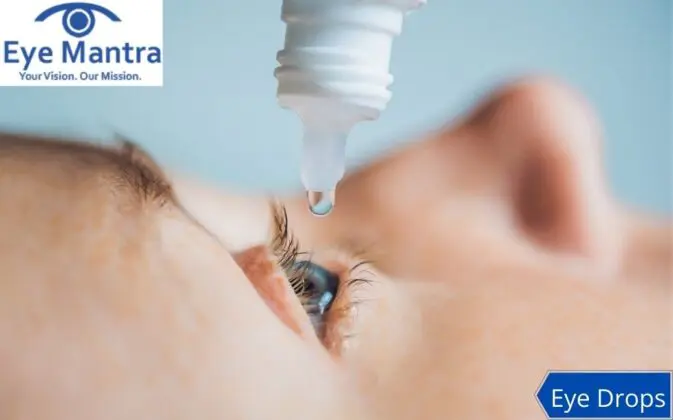
Contents
Eye drops, just like the rest of the medicines are used to treat the different ailments of eyes, often prescribed by an ophthalmologist. They need to be used under surveillance and with care other more familiar medications. The missing doses, discounting treatment, or failing to use the eye drop are direct put your sight at risk.
Eye drops are also used in the treatment of eye problems like glaucoma, allergies, dry eyes or raised eye pressure, conjunctivitis, ocular inflammation, and dry eyes. They mainly prescribed by the doctor after eye surgery, when there is a need to prevent infection or reduce inflammation. You should use eye drop as per your doctor’s prescription or advice.
Eye drops are the greatest way to keep your eyes hydrated, especially if you have dry eyes or spend a lot of time staring at the screen. This lubricant has the power to relieve your dry, tired eyes and encourage your eyes to produce tears, keeping them lubricated and more comfortable.
Eye drops and ointments can be broken down into non-prescription eye drops and prescription (Rx) eye drops. Non-prescription eye drops also are called over-the-counter, or “OTC” eye drops. Non-prescription drops are appropriate in many cases, and they typically are less costly than prescription eye drops.
But before using OTC eye drops, see an Optician to determine which type of eye drop is most appropriate for your needs. Don’t gamble with your eyes!
There are two kinds of allergies that we usually suffer from Seasonal allergies and perennial allergies. Both cause inflammation of the immune system causing our bodies to secrete histamines which can result in symptoms like redness of eyes or itchy eyes. Allergies can also causing red eyes, dilated blood vessels, pruritus, burning, swollen eyelids(which is worse in the morning) & tearing.
Seasonal allergies as the name suggests are caused only at a particular time of the year usual culprits being pollen, weeds, or spores from certain kinds of mould.
Perennial allergies are caused by allergens we’re surrounded by all year round. For example dust, pollution, Chlorine and can even be triggered by some kind of medication.
In addition to these symptoms, the patient can sometimes suffer from a stuffy or a runny nose, runny eyes, etc. Drops for this is available at your local pharmacy or via prescription.
Eye infection is pretty common and sometimes can be highly contagious. They include Pink eyes, styes, infections, of the eyelids, and other suspected infections.
Inflammation of the outer layer of the eyeball or on the inside of an eyelid can cause Conjunctivitis. However, it’s not always triggered by some kind of bacterial or viral invasion in the patient but can even occur as a symptom of a major cold.
Inflammation of Cornea usually mediated by harmful virus or bacteria thriving in water. Hence people who wear lenses are more likely to develop this infection.
Pimple-like developments on your eyelids are called style they can have a pinkish hue to them and get swollen too. Styes are usually non-contagious but can be painful and are filled with inflammatory cells or even pus. Your eyes specialist prescribes you antibiotics, eye drops, or other safe and effective products.
This disease occurs at every age. The most common cause of dry eyes is tear-deficient dry eyes. They are caused by a host of prescription and non-prescription drugs, like anti-cholinergic, antihistamines, diuretics, hormones, nasal decongestants, oral contraceptives, and tricyclic and other antidepressants.
They also have components that are already naturally occurring in your eyes to encourage more tears. The eye drop help to keep them naturally more hydrated. They are designed for contact lens wearers. The high level of sodium hyaluronate(HA) helps to make natural tears stay on the surface of your eyes and providing long-lasting hydration.
The redness of the eye is caused by inflammation or dilation of blood vessels. The eye drop helps to eliminate redness by reducing the size of blood vessels in the eyes, making them appear whiter. They are also known as Decongestants. The most common agents to cause eye redness are heat, sun, bacterial or viral infections like measles. Often times continuous coughing can cause red blotches in the eye which is called Subconjunctival Hemorrhage. However, if these little red blotches are not painful they can be treated with proper care within 7-8 days.
Corticosteroid Eye drops are usually prescribed however they can sometimes cause side effects like glaucoma and ocular hypertension in some patients. If you are suffering from glaucoma using these eye drops makes your problem worse.
The specific drop used with contact lenses is commonly known as rewetting drops. It helps to clean and hydrate throughout the day. They are designed to be used with your contact lenses. However, it’s better to check theto see your product is suitable for use with a contact lens or not.
Some of the OTC (over the counter) eye drops used to reduce allergy symptoms can counter act and cause redness and itching in return. which is why it is always necessary to consult your doctor before hand.
Eye drop cannot be addictive as they have natural moisturizers and are not harmful. however, if you use eye drops with preservatives like Benzalkonium Chloride which can lead to hypersensitivity. but rest assured Eye Drops are not addictive irrespective of the frequency of usage or prolonged use.
The applicator surface should be sterile and properly cleaned before used the applicator should not touch the surface of the eyes, this is especially key with the preservative eye drops. If prescribed multiple eye drops make sure to apply them at different intervals or 5 minutes apart.
Only use them as when directed by your ophthalmologist.
We also offer various services like Retina Surgery, Specs Removal, Lasik Surgery, Squint, Cataract Surgery, Glaucoma Surgery, and much more.
[video_lightbox_youtube video_id=”YTpBA1scVx4″ width=”1200″ height=”800″ auto_thumb=”1″]